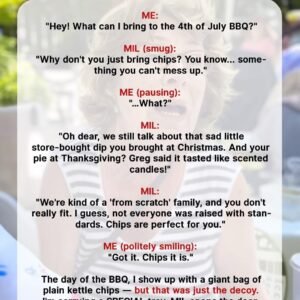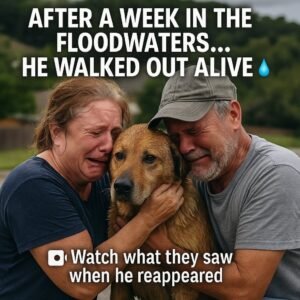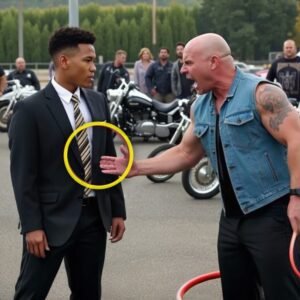My ex-wife’s grandfather, Orville, was the sort of man everyone assumed was stoic and distant—but beneath his reserved exterior beat the heart of someone who had lived through more stories than most of us will ever know.
He’d quietly amassed a fortune, yet few of his relatives cared about the person behind the wealth; they saw only a bank account, not the gentle soul who’d weathered life’s storms. I never played that game. I didn’t want his money; I simply wanted my children to know their great-grandfather as he truly was: a man of laughter, wisdom, and quiet courage.
One afternoon that spring, Orville surprised me with a phone call. “Do you need anything?” he asked, his voice calm. I told him no—just time. “All I want,” I said, “is for the kids to know you while we still can.”
He paused, then let out a soft chuckle. A few weeks later, he extended an invitation that stunned our family: he wanted my children and me to spend the entire summer at his lake house in northern Minnesota. My ex-wife accused me of scheming for an inheritance, but she didn’t understand that this trip was never about money. It was about connection.
As we drove those eight hours—with fishing poles tacked to the roof, sleeping bags piled in the backseat, and marshmallows within arm’s reach—the kids erupted into off-key campfire songs. When we finally arrived, Orville was waiting on the weathered dock, his loyal golden retriever, Rufus, bounding by his side. The children raced into his arms, and in that joyful reunion, the summer truly began.
That first evening, after bedtime stories and roasted marshmallows, Orville and I sat on the porch. We sipped decaffeinated coffee in creaking chairs, watching fireflies drift over the dark water.
He confided that he feared his days were numbered. His children, he said, had drifted away, absorbed by their own busy lives. “But you,” he said, voice catching, “you brought them back.” His gratitude was palpable, and I realized how much this time meant to him—and to all of us.
Each dawn, Orville woke the kids gently, guiding them down to the shoreline to witness the sunrise’s pink and orange glow. He taught them to bait hooks, cast lines, and wait in peaceful patience—lessons that no classroom could ever provide. As the weeks unfolded, we swam in the cool lake, grilled hot dogs over open flames, and sat riveted by Orville’s stories: how his father had carried him miles home after a bicycle crash; how he prayed each night during the war, hoping to return alive. The children listened with wide eyes, absorbing every word.
When storms rolled in, he turned thunder and lightning into an adventure. He instructed the kids to count the seconds between flash and boom, explaining that storms were nature’s way of breathing. We built blanket forts in the living room, and laughter chased away any hint of fear.
Midway through the summer, my ex-wife showed up unannounced with her new boyfriend, posing for pictures and extolling the comforts of luxury travel. Orville welcomed them politely, but I saw the sadness flicker in his eyes. Later that night, he pulled me aside. “They love what I own,” he said quietly. “You help them love who I am.” His words reminded me why we were there: to cherish the man himself, not his possessions.
Then came the day Orville twisted his ankle in the garden. I carried him inside, and for several slow, cozy days, we lingered by the fireplace. The children fussed over him with damp cloths and pillows, offering juice and recounting their favorite memories. Holding his hand, Orville whispered,
“This has been the best week of my life.”
On our last morning, he presented the kids with an old wooden box filled with coins from around the world—each piece threaded with its own tale. “These stories belong to you now,” he said. “Keep them alive.” The children nodded solemnly, feeling the weight of his gift.
Back home, they called him every week, sharing school news and soccer victories. As autumn approached, Orville’s health waned, but he insisted we not return. “Let them remember the lake,” he told me. “And the laughter.” One night, his nurse phoned to say he wanted to speak. His voice was barely audible, yet filled with pride. “Thank you for giving me something my kids never did—your presence.” He passed away later that night, with Rufus curled at his side.
At the funeral, greedy relatives mulled around, expecting to inherit his estate. Instead, they discovered his true legacy: he had donated most of his fortune to a children’s hospital, entrusted the lake house to a veterans’ retreat, and left my children only the coin collection, his handwritten letters, and a final note:
“Thank you for giving me the happiest summer of my life.” My ex-wife fell silent; her bitterness had nowhere to land.
As we drove home, Alex and Lila clutched their letters like treasures. Alex later used one of Orville’s coins for a school project, moving his teacher to tears.
Lila began penning stories inspired by their adventures. Every Christmas, we light a candle in his honor, sharing tales of his great generosity: the night Rufus jumped in after a duck and came back with a frog, the secret marshmallow stash he kept for rainy days.
Years later, Alex studies social work, and Lila writes children’s books. I remarried a woman whose kindness matches Orville’s, and together we help maintain the veterans’ retreat at the lake house. One soldier there once hugged Alex, whispering, “Your great-grandfather saved my life.” In that moment, I saw how Orville’s love extended far beyond our family.
I once thought my divorce was a failure. Instead, it led to the most profound gift I could ever imagine: a single summer that reshaped our lives. Real wealth, I learned, isn’t measured in dollars but in shared sunrises, whispered tales, and the courage to show up for someone else. If this story moves you, pass it on—remind someone that the richest things in life can never be bought. They’re woven from time, love, and the bravery to be present when it matters most.





